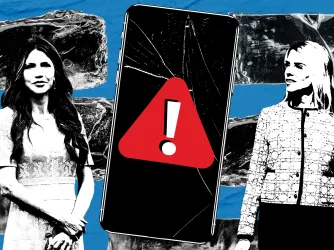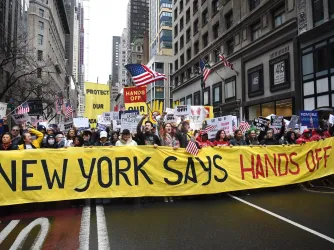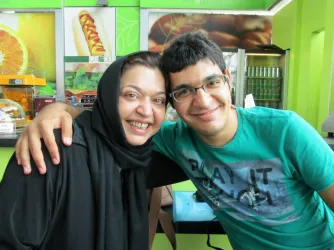Table of Contents
Kennesaw State settles two student speech lawsuits in one month

Kennesaw State University in Georgia settled two lawsuits last month filed on behalf of several students and student organizations, agreeing to revise several unconstitutional speech codes and pay attorney’s fees to Alliance Defending Freedom, counsel in both cases.
In late October, Kennesaw State settled Ratio Christi of Kennesaw State University v. Olens, filed after university administrators twice relegated a Christian student group and its pro-life display to an out-of-way “free speech zone” because the group’s display was viewed as “controversial.” In its complaint, the student group alleged that Kennesaw State’s policies imposed onerous reservation requirements for student expressive activity, gave administrators unbridled discretion to quarantine disfavored speech to the free speech zone, and imposed varying security fees for events deemed controversial.
As FIRE has long advocated, tiny or remote free speech zones and onerous permit requirements unduly burden students’ free speech rights and run contrary to First Amendment case law. Public areas of campuses should be open to — and, indeed, universities should welcome — peaceful, non-disruptive student expression, rather than forcing students to ask permission and quarantining them away from fellow students.
As we’ve also long explained, imposing the cost of security on student organizations because an event is subjectively perceived as controversial is unconstitutional viewpoint discrimination, imposing a tax on protected speech because of the reaction it may provoke in others.
As part of its settlement, Kennesaw State reformed its policies to ensure students can engage in expressive activity in the public outdoor areas of campus, directed its reservation requirements to larger events, and established viewpoint-neutral criteria for assessing security fees. The university also agreed to pay $20,100 in attorney’s fees.
Days later, Kennesaw State settled a lawsuit filed by another student organization that also challenged the university’s policy on security fees, as well as its policies awarding groups access to campus space and funding based on arbitrary classifications. In Young Americans for Freedom of Kennesaw State University v. Harmon, plaintiffs, a conservative student group and its co-chairman, alleged that the university gave itself unbridled discretion to decide in which of four tiers to place student groups. That label decided the group’s level of access to reservable locations on campus, student activity fee funding, and other university resources. The system, plaintiffs alleged, functioned as a subjective hierarchy under which they received less favorable treatment because of their unpopular views. They also alleged the group was forced to pay $320 in security fees to host a speaker deemed “controversial.” According to ADF, as part of the settlement, Kennesaw State agreed to revise its security fees policy and its complicated system of ranking student organizations.
Earlier in October, FIRE toppled a similarly arbitrary student group funding system at the University of Rhode Island. Working with a diverse coalition of student organizations that were denied funding, we convinced URI’s Student Senate to abandon its system of subjectively classifying certain groups as “political” or “religious,” and then denying those groups access to student activity fees. In early October, the Student Senate voted to remove its erratic classification system and allow all groups to seek funding on a viewpoint-neutral basis.
As always, FIRE is pleased to see First Amendment lawsuits bring positive policy change to campus that will benefit students long after plaintiffs have graduated. We encourage every student to learn about your school’s speech codes and to stand up for your own speech rights on campus.
Recent Articles
Get the latest free speech news and analysis from FIRE.

FIRE sues Bondi, Noem for censoring Facebook group and app reporting ICE activity

Deep dive into New York’s proposals to ban demonstrations near houses of worship

Iran replaced my mother’s voice with silence
